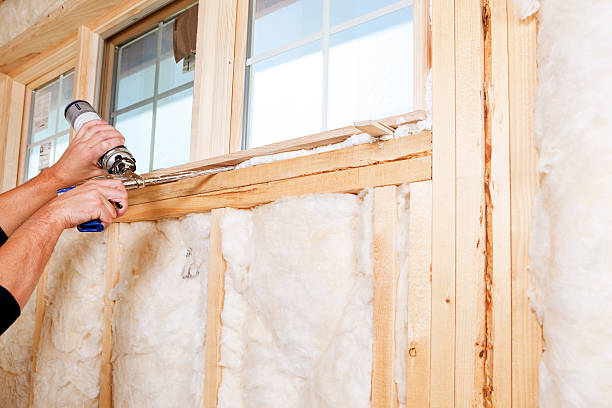Spray foam insulation is a popular and effective method of insulating homes and commercial buildings. It is a versatile material that provides several benefits, making it a preferred choice for many construction projects. Here are some key aspects of spray foam insulation:
1. Types of Spray Foam: There are two main types of spray foam insulation: open-cell and closed-cell.
- Open-Cell Foam: This type of foam is lighter and less dense, providing excellent sound absorption. It is more flexible and is often used in interior applications.
- Closed-Cell Foam: Closed-cell foam is denser and offers a higher R-value, making it more effective at insulating against heat and cold. It is commonly used in exterior applications.
2. Application Process: Spray foam insulation is applied as a liquid that expands into a foam when it comes into contact with air. Professional installers use specialized equipment to spray the foam onto surfaces, creating a seamless and airtight insulation layer.
3. Thermal Performance (R-Value): The R-value measures the thermal resistance of a material. Spray foam insulation has a high R-value, indicating its effectiveness in preventing heat transfer. Closed-cell foam generally has a higher R-value than open-cell foam, providing superior insulation.
4. Air Sealing Properties: One of the significant advantages of spray foam insulation is its ability to create a continuous and airtight seal. This prevents air leakage and infiltration, reducing energy costs and improving indoor comfort.
5. Moisture Resistance: Closed-cell spray foam is impermeable to water, making it an excellent choice for areas prone to moisture. It can help prevent issues like mold and mildew growth by acting as a barrier against water vapor.
6. Sound Insulation: Open-cell spray foam, with its softer and more flexible structure, is particularly effective at absorbing sound. It can be used to minimize noise transfer within buildings, making it suitable for interior walls and ceilings.
7. Longevity and Durability: Properly installed spray foam insulation can last for a long time without significant deterioration. It adheres well to various surfaces, providing lasting insulation and structural support.
8. Energy Efficiency: The air-sealing properties of spray foam contribute to increased energy efficiency. By reducing drafts and minimizing heat loss or gain, buildings with spray foam insulation require less energy for heating and cooling.
9. Environmental Considerations: While spray foam insulation is effective, there are environmental considerations. Some formulations may contain chemicals with environmental impacts. It’s crucial to choose formulations with low volatile organic compounds (VOCs) and work with experienced professionals who follow proper installation practices.
10. Professional Installation: Due to the precision required in the application process, it is advisable to hire experienced professionals for spray foam insulation installation. Professionals ensure that the foam is applied correctly and adheres well to surfaces, maximizing its effectiveness.
In summary, spray foam insulation is a versatile and efficient solution for creating a well-insulated and airtight building envelope. It offers benefits such as energy savings, improved indoor comfort, and durability when applied by skilled professionals. Consider the specific needs of your project and consult with insulation experts to determine the most suitable type of spray foam for your application.
